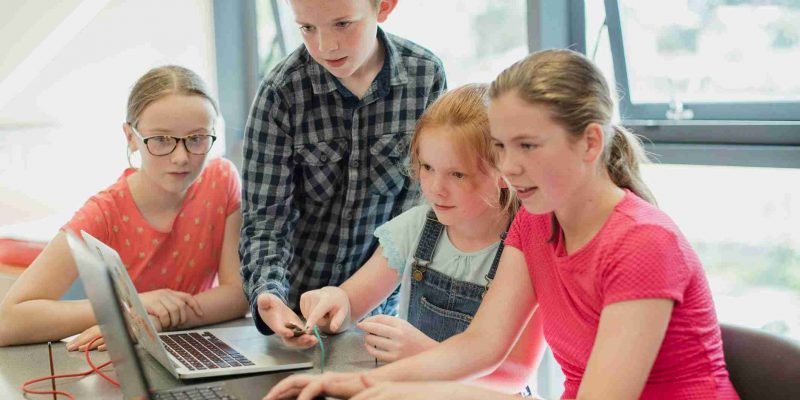Through coding, computer programmers tell computers or mobile devices how to run. It may be surprising but kids can begin learning basic programming when they are as young as 5 years old or even younger. Kids can take part in image-based games and riddles that offer coding principles.
What is Coding?
Coding is the way of providing a computer with the instructions to accomplish a particular task. Computer programming or software programming may also be used to refer to coding.
These instructions are conveyed through a language that computers can understand, such as visual blocks, Python, JavaScript, HTML, and CSS.
Learning to code or computer programming for kids has become a vital part of a child’s education and a wonderful way for them to articulate their creativity.
What is Coding for Kids?
Kids and teens can get a great opportunity through learning to code at an early age to improve their skills of problem-solving and critical thinking at the same time as developing the essential focus and organization to get projects completed.
Coding typically starts with drag-and-drop visual programming where kids attach blocks to create programs. Visual programming emphasizes the reason behind the code and teaches the basic concepts without typing or syntax.
After learning the fundamentals, kids can switch to real-world programming languages such as JavaScript, Python, and C.
Read Also: All About Block Based Coding
Some Common Myths About Coding for Kids
There is no arguing that learning to code has loads of benefits for kids. Unluckily, there are even now some common myths and misconceptions out there about coding for kids, which may cause young people to be turned off by the field altogether.
Myth 1: You have to be extremely intelligent
The base of coding is indeed developed on algorithms but you do not need to be a genius math geek with a giant IQ to learn to code. You do not even need to receive any formal education of any kind. There are countless resources obtainable for free and exploit games to teach the fundamentals of coding. Coding is more about common sense, creativity, dedication, and hard work. Kids can begin learning to code as young as kindergarten!
Myth 2: There is no human communication in coding
A common mistaken belief is that coders just sit behind a desk and gaze at a screen for 8 hours. This is simply not true! One common matter among web developers is the promotion of knowledge sharing. This indicates working together and conversing with your colleagues to help each other cooperate on projects. Programmers act as a team, not in seclusion!
Myth 3: You need to be an outstanding geek to get on
It is in reality a huge concern with engaging kids in coding. Both parents and children have an unfavorable attitude toward coding and are anxious about their kids’ social skills. The truth is that coding does involve some head down concentrated time but eventually making any larger scale project such as an app needs teamwork and the faculty to distinctly share ideas.
Read Also: Benefits of Coding Classes for Kids Who Love Programming
Myth 4: You will turn into a human-machine
There is a common false impression that developers sit behind a computer all the time. Though it is valid that coding is essentially working on a sequence of logic puzzles all along, the procedure is utterly creative. Coding has to do with trial and error. Most coders devote most of their day to inventing solutions and searching for creative choices for the job they are performing.
Myth 5: Coding is only for students who are proficient in math and science
People mistakenly think that since coding is a computing-linked skill, one requires to be a math wizard or a science front-runner to code. Quite the reverse, rudimentary math skills and a problem-solving approach are all that you require to be a proficient coder.
Read More : 8 Of The Best Online Coding Courses For Your Kids














Comments